10 customer service interview questions for employers
One of the simplest methods for identifying high performing customer service professionals? Using the right interview questions. Find out what they are below, and how to run interviews like a pro.
-

Julia Boraston
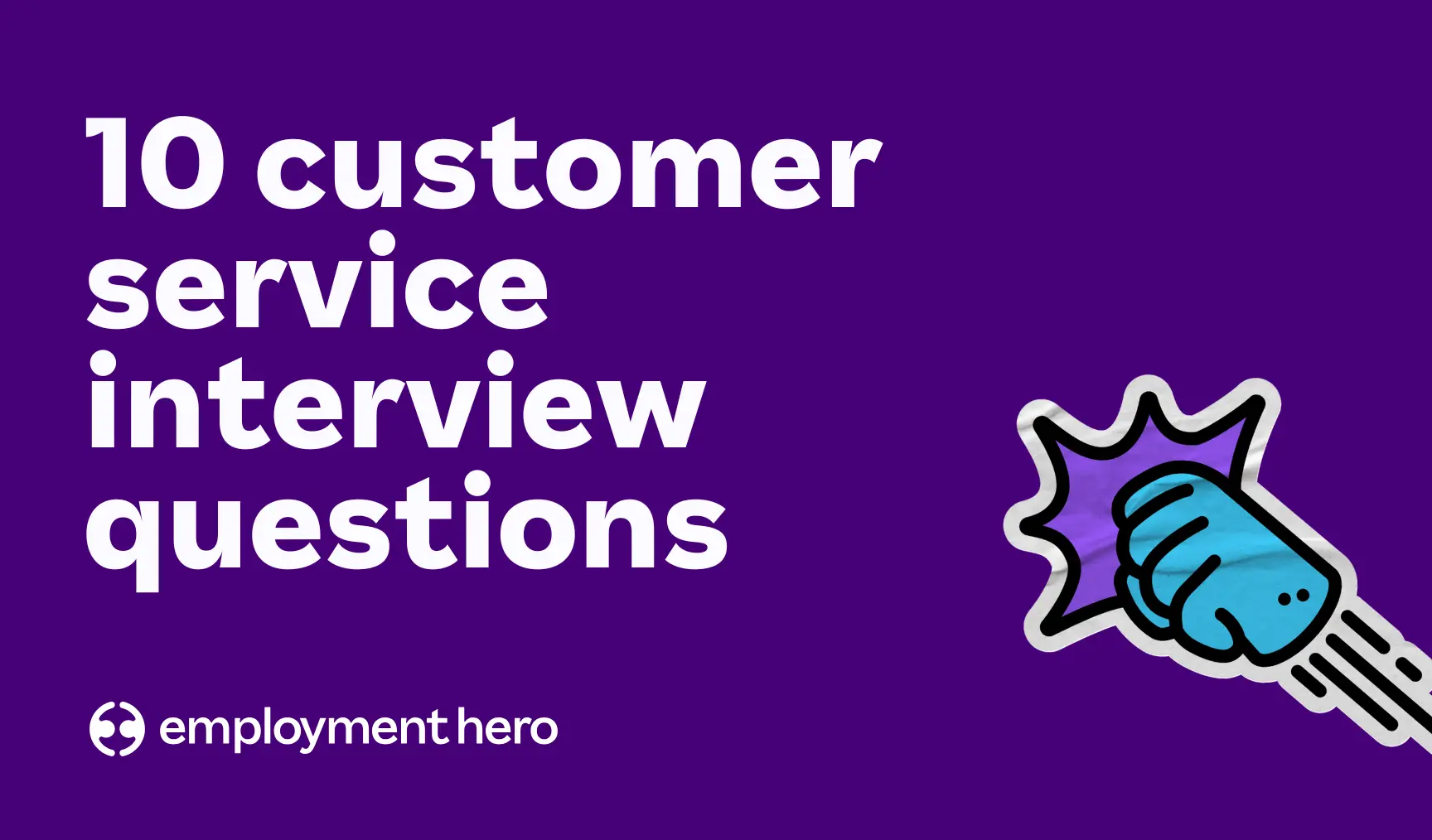
Contents
If you’re hiring a customer service representative, there’s something crucial you need to know. Their impact on your business, whether good or bad, extends way beyond answering phones. In fact, customer service reps can be make or break for your business.
That’s because a good customer service representative is one who protects your brand, builds genuine rapport, and drives customer loyalty and retention.
A bad customer service rep? They do the exact opposite.
That’s why it’s essential you take care when hiring customer service representatives and you can nail the process with the right customer service interview questions.
Below, we walk you through:
- What traits make a great rep, so you know exactly what you’re looking for.
- How to optimise your job postings to attract them.
- 10 customer service interview questions every employer should ask to secure high performing customer service professionals.
- How to evaluate a candidate’s customer service experience, problem solving skills, and communication style; three crucial factors when hiring reps.
- Interview tips to ensure consistency in your hiring results.
- Bonus behavioural interview style questions
Psst! Looking for customer service reps now? We have just the thing: hire staff now.
Let’s get to it.
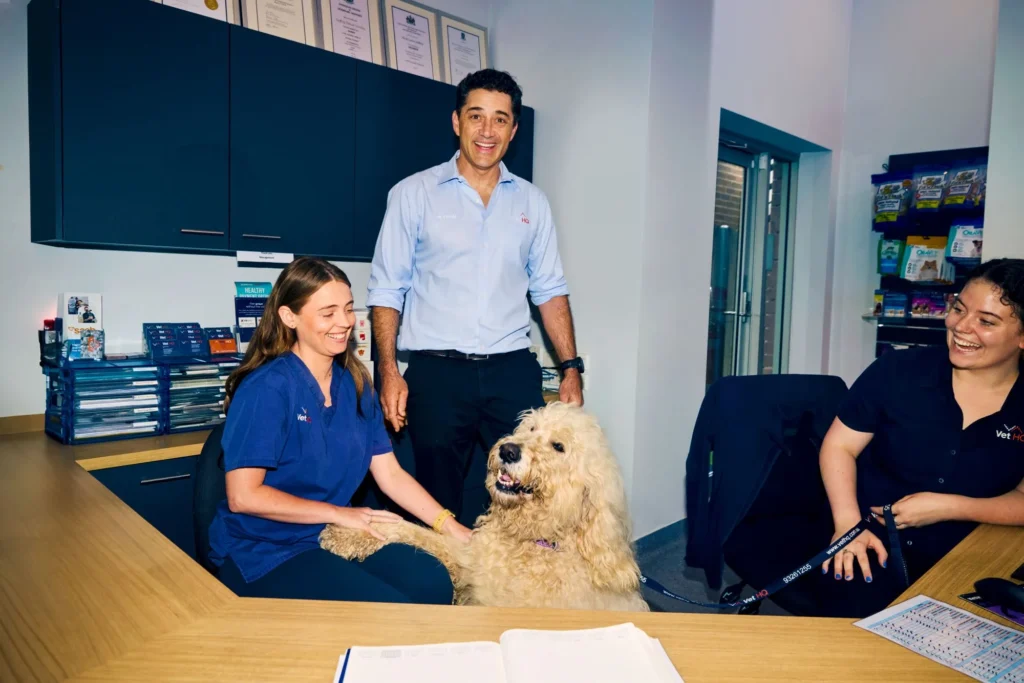
Why hiring the right customer service rep matters
Behind every satisfied customer is a great customer service representative. These team members play a critical role in maintaining customer satisfaction, solving issues, and upholding your company’s values. A strong customer service team can increase retention, improve reviews, and reduce churn.
But finding the right customer service professional isn’t always easy. Many hiring managers struggle to attract quality candidates for a customer service position. That’s why it’s important to carefully structure your customer service interview and to craft an effective job posting that attracts the right kind of people. We tackle exactly how to do that below.
Struggling to hire good people on a budget? The Business Owner’s Guide to Competing for Top Talent gives you everything you need to do so – without increasing your spend.
What skills should a customer service team have?
Great customer service doesn’t happen by accident. It’s driven by people with the right mix of technical and soft skills – the kind that keep customers satisfied and loyal. Whether you’re hiring your first support rep or scaling a full team, these are the skills to look for.
Communication skills
Clear, confident communication is at the heart of every great customer interaction. Your team needs to be able to explain solutions simply, adapt their tone to different situations, and actively listen to what the customer is really saying, not just respond to what they hear. Strong communication helps defuse tension, build rapport, and leave customers feeling heard and valued.
Problem solving skills
No two customer issues are the same. That’s why customer service professionals need to be resourceful, calm under pressure, and able to think on their feet. Great problem solvers look beyond the surface to understand the root of the issue, then take proactive steps to resolve it. This not only results in a positive outcome for the customer, but often leads to smarter internal processes too.
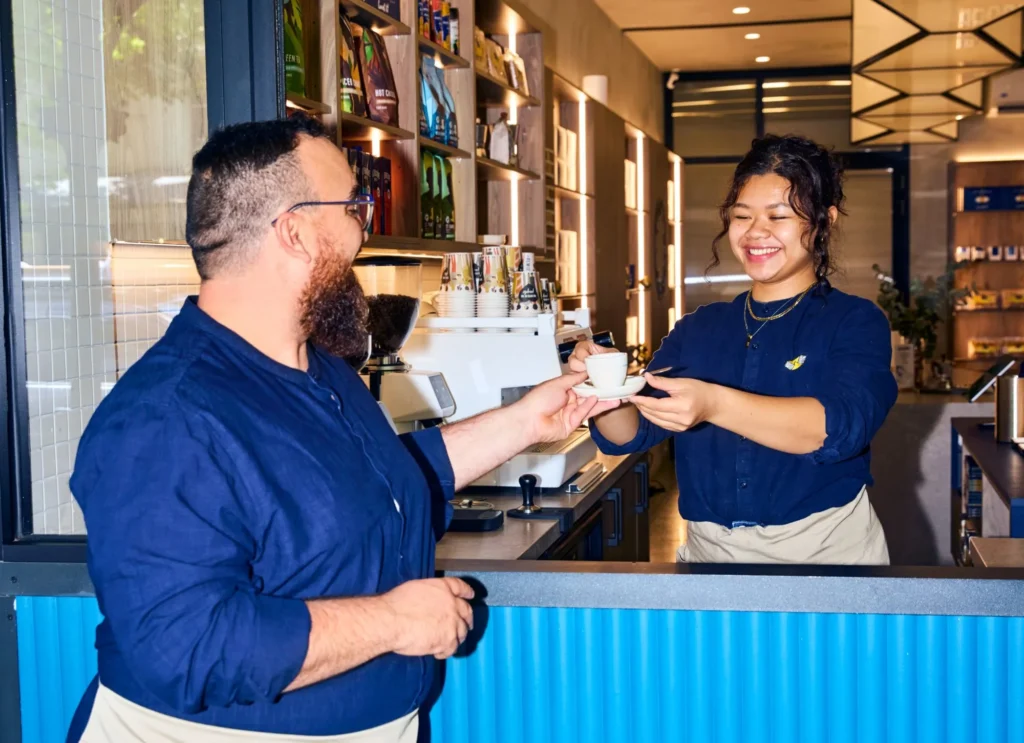
What makes a great customer service representative?
Before we get to the interview questions and answers, let’s define what makes a great customer service representative so you know what to look for. In addition to excellent communication skills and the ability to demonstrate strong problem solving abilities, they should also:
- Have a positive approach and attitude toward resolving customer complaints
- Remain calm under pressure and when dealing with an an upset, frustrated or angry customer
- Adapt their communication style to suit the customer’s perspective
- Follow company policies without compromising customer satisfaction
These are the traits you should look for in any customer service job interview. Come back to them anytime you need a refresher.
Watch out for recruitment bias
Without a robust hiring process in place, bias can start to creep into the recruitment process. Our Hiring Compliance Guide helps you protect yourself, and your candidates, from any risk of bias. From a comprehensive list of protected characteristics, do’s and don’ts during the interview, and even a fillable interview template and scorecard, download it today for easy reference.
Optimising your job posting to attract your ideal candidate
Now you know what to look for in an ideal customer service professional, it’s essential you communicate these things in your job posting. That way, before you even get to the interview stage, you should have a strong selection of candidates to consider. Your job posting should include:
- A clear and engaging job description
- Required customer service skills and competencies, including those listed above
- Advantageous traits, experiences, knowledge and skills that aren’t necessarily a requirement
- Insights into your company culture and values
- Opportunities for professional development, learning and career advancement
One-click job posting: Say goodbye to lengthy job descriptions
With the All-in-one hiring system, our one-click job posting feature means writing your own job descriptions is a thing of the past. Just add your minimum requirements and get automatically matched with top talent. Then, you can tap into your very own talent pool as and when you need it.
The top 10 customer service interview questions
These 10 customer service interview questions will help you uncover whether your candidate has what it takes to elevate the customer service experience – or if they aren’t quite the right fit for your customer service team. Each service interview question includes a purpose, an example answer, and importantly – the red (and green!) flags to pay attention to.
1. What does excellent customer service mean to you?
Example answer:
“Great customer service means going beyond just solving a customer’s problem. It’s about delivering personalised service, ensuring a positive outcome, and building customer loyalty.”
Good signs to look for: Clear, values-based definitions that link service to loyalty or business success. Personal passion for customer experience.
Watchouts: Vague or generic responses that suggest the candidate hasn’t thought deeply about what good service really means.
2. Describe a time you received poor customer service. What did you learn from it?
Example answer:
“I contacted a provider about a billing issue. The response felt rushed and impersonal. It made me realise how powerful listening and empathy are in turning around a negative interaction.”
Good signs to look for: Honest reflection, clear takeaway, and a commitment to doing things differently as a service provider.
Watchouts: Candidates who only focus on the negative, without drawing useful lessons, or who show a lack of empathy for the rep involved.
3. How would you deal with an angry customer?
Example answer:
“I stay calm, listen actively, and show I understand their frustration. I aim to resolve the issue quickly and follow up to make sure the customer feels heard and valued.”
Good signs to look for: Emotional control, confidence, and a respectful tone toward customers in stressful moments.
Watchouts: Discomfort with emotional conversations or an overly defensive attitude.
4. What would you do if you didn’t know the answer to a customer’s question?
Example answer:
“I’d be honest and let the customer know I’ll follow up. I take responsibility for finding the answer quickly and make sure they feel supported throughout.”
Good signs to look for: Accountability, follow-through, and transparency. Willingness to seek help or confirm information.
Watchouts: Avoiding responsibility or offering guesses rather than admitting a knowledge gap.

5. Tell me about a time you went above and beyond for a customer.
Example answer:
“A customer had a last-minute request ahead of a product launch. I worked with our logistics team to get it sorted that day. They became a long-term customer and gave great feedback.”
Good signs to look for: Initiative, cross-team collaboration, and customer impact.
Watchouts: Vague stories with no clear customer benefit or examples that don’t reflect the candidate’s direct actions.
Heads up! Our recruitment software makes finding and securing customer service professionals a breeze. Bring advertising, shortlisting, interviewing, onboarding and beyond into one place.
6. How do you prioritise when handling multiple customer inquiries?
Example answer:
“I look at urgency and potential impact, while communicating regularly with all customers so no one feels left behind. Clear planning helps me keep things on track.”
Good signs to look for: Structured thinking, time management, and strong communication.
Watchouts: Disorganised responses, or neglecting to mention customer communication while managing workload.
7. What tools have you used in previous customer service roles?
Example answer:
“I’ve used Intercom and Zendesk to manage tickets and customer histories. I’m confident in adopting new systems and keeping documentation accurate.”
Good signs to look for: Familiarity with relevant platforms and confidence in using digital tools.
Watchouts: Lack of exposure or hesitation to learn new systems, which may slow onboarding.
8. How do you stay motivated during repetitive or challenging tasks?
Example answer:
“I remind myself that each query is a chance to improve someone’s experience. I stay energised by focusing on what I can control and celebrating small wins.”
Good signs to look for: Optimism, self-awareness, and consistent internal motivation.
Watchouts: Flat or disengaged tone, or candidates who admit they easily lose interest without structure.
9. How do you respond to feedback from your manager or a customer?
Example answer:
“I welcome feedback. At a previous job, I was told I could slow down on calls. I adjusted my pace and received more positive reviews from customers.”
Good signs to look for: Coachability, openness to change, and examples of action taken.
Watchouts: Defensiveness or language that frames feedback as a negative, rather than a chance to improve.
10. Why do you want to work in a customer service position?
Example answer:
“I genuinely enjoy solving problems and making people feel supported. This role lets me turn challenges into great outcomes and contribute to a positive team culture.”
Good signs to look for: Passion for service, alignment with company values, and enthusiasm for customer-focused work.
Watchouts: Generic or superficial answers that don’t show real interest in the role or its impact..
Tip! An Applicant Tracking System makes interviews so much easier. Keep track of every applicant, make notes about the progress of each application, and keep your interview notes all in one central place.
Interview preparation tips
With these questions on hand, you’re well on your way to finding great customer service reps for your team. The next step is ensuring you can tick off the following for each of your interviews:
- Structure your service interview for success
The structure of your interviews are just as important as the interview questions and answers. We recommend you follow the same structure for every interview to ensure everyone is starting from a level playing field.
This will help you make informed hiring decisions based on each candidate’s objective performance during the interview, and can help negate hiring bias that won’t necessarily help you secure the right fit for the job.
- Score consistently
Using a consistent system for scoring candidates is another great way to ensure you make informed hiring decisions free from bias. We recommend creating a structured scoring rubric for each question, such as the STAR method discussed earlier – and focussing on key traits like customer service experience, tone, clarity, and how each candidate demonstrates problem solving skills under pressure.
Psst! You’ll find a fillable, printable interview template and scorecard in our free Hiring Compliance Guide for Hiring Managers.
- Use role-playing scenarios
Verbal questions and answers are the foundation of your interviews, but it can be useful to mix it up with other ways of assessing candidates. Role-play exercises, for example, are an easy way for the candidate to show you how they may perform in customer service scenarios in practice.
You could, for example, ask candidates to act out situations like dealing with an angry customer or resolving a complex complaint. This will be particularly useful in helping you assess their communication style, ability to remain calm under pressure, and how they apply your company’s policies and values in real time.

Bonus: Behavioural interview questions and the STAR method
Behavioural interview questions help you assess how a candidate acted in past situations, a reliable predictor of future performance in a customer service role. We recommend using a mixture of both service interview questions and behavioural interview questions to help you gain a clear understanding of each candidate.
When asking behavioural interview questions, be sure to encourage candidates to use the STAR method when answering. That is:
- Situation – What was the context?
- Task – What was their responsibility?
- Action – What did they do?
- Result – What was the outcome?
Find out more about behavioural interview questions
Example behavioural interview questions
These can help evaluate communication style, emotional intelligence, and problem solving skills in real-world settings:
- Tell me about a time you handled a particularly difficult customer.
Assess composure, empathy, and conflict resolution. - Describe a situation where you had to solve a problem quickly under pressure.
Look for clear thinking and accountability. - Give an example of a time you went above and beyond for a customer.
Shows initiative and commitment to customer satisfaction. - Tell me about a time you received constructive feedback. How did you respond?
Tests growth mindset and adaptability. - Describe a situation where you had to collaborate with a teammate to help a customer.
Reveals teamwork and internal communication skills.
Frequently Asked Questions
The 5 C’s are a helpful framework to structure your customer service interview and keep it focused. They are:
- Clarity – Can the candidate explain themselves clearly and concisely?
- Confidence – Do they speak with self-awareness and assurance?
- Communication – Can they adapt their communication style to different situations and people?
- Culture fit – Will they complement your company culture and team dynamics?
- Competence – Do they have the customer service skills and experience needed for the role?
Aim to include a mix of:
- Service interview questions – These explore how a candidate handles real-time queries, solves problems, and delivers a positive outcome.
- Behavioural interview questions – These reveal how they’ve handled challenging situations like a customer complaint, an angry customer, or juggling priorities in the past.
This combination gives you a well-rounded view of both technical ability and mindset.
Two is ideal:
- A structured customer service interview to assess role readiness, tone, and service mindset.
- A follow-up with a team member or manager to explore culture fit and soft skills like empathy and collaboration.
This ensures you evaluate both performance and potential, and that they’ll gel with your existing customer service team.
The most valuable soft skills include:
- Empathy
- Problem solving skills
- Adaptability
- Active listening
Together, these help a customer service professional navigate tricky conversations, resolve issues quickly, and protect long-term customer satisfaction.
Ask questions that uncover their working style, values, and attitude toward teamwork. Use a second interview with a peer to see how they communicate with others and whether their personality aligns with your team’s energy and expectations.
Yes. Role-play gives you a clear view of how candidates respond in real time — particularly in high-pressure moments like handling an angry customer or explaining a delay. It helps you assess emotional control, tone, and real-world decision making.
Great answers use the STAR method – Situation, Task, Action, Result – to walk you through what happened and how the candidate contributed. Look for storytelling that shows ownership, confidence, and a commitment to creating a positive outcome.
Ask where they see themselves in 12–24 months and what motivates them day to day. Look for signals that they’re curious, proactive, and focused on improving the customer experience – not just closing tickets.
Build a team that delivers great customer service
With these customer service interview questions at hand and a thoughtful interview process, you’re well on your way to finding the next great customer service representative for your team.
But if you really want to elevate your hiring approach, you need the right tools.
Fortunately, our all-in-one hiring system is built to help you do just that. Designed for New Zealand businesses, it brings every stage of recruitment into one simple place.
Create and publish job ads to over 20+ job boards with a single click, and build branded career pages that showcase your company culture. Track applicants, shortlist candidates, and collaborate with your team – all in real time. No spreadsheets. No email chains.
With smart automation and built-in templates, you can cut admin and stay focused on what really matters: hiring great people. Plus, once you’ve found your ideal candidate, you can send an offer and kick off onboarding in just a few clicks.
Whether you’re growing your first team or scaling fast, our hiring tool is built to make recruitment faster, fairer, and more efficient. It’s everything you need to hire well.
Simplify hiring. Save time. Grow your team with confidence. Book a demo.
Related Resources
-
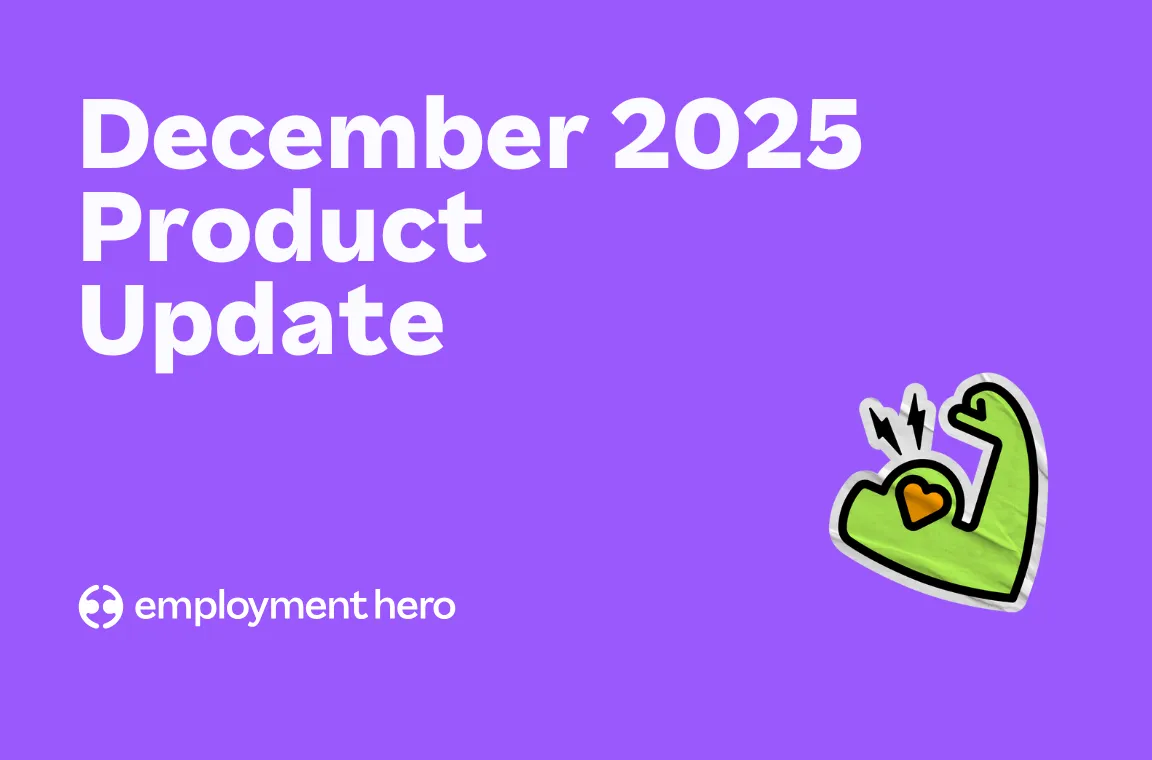 Read more: Product Update: December 2025
Read more: Product Update: December 2025Product Update: December 2025
Welcome to the December 2025 product update from the Employment Hero team. We’ve got lots to share around Custom Forms,…
-
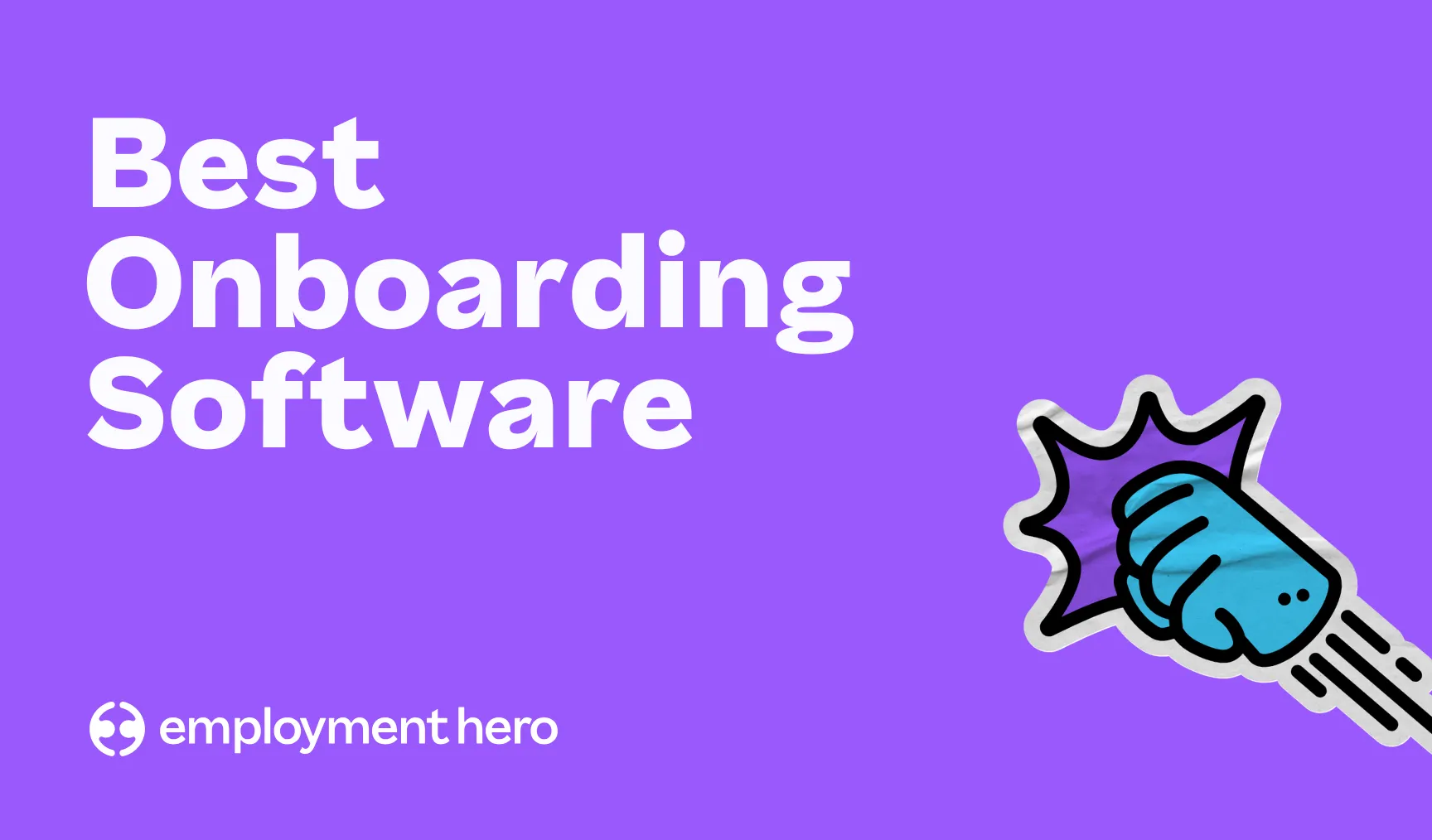 Read more: Best Onboarding Software in New Zealand (2026)
Read more: Best Onboarding Software in New Zealand (2026)Best Onboarding Software in New Zealand (2026)
Streamline employee onboarding with the top 6 software in NZ for 2026. Compare the best tools to create a seamless…
-
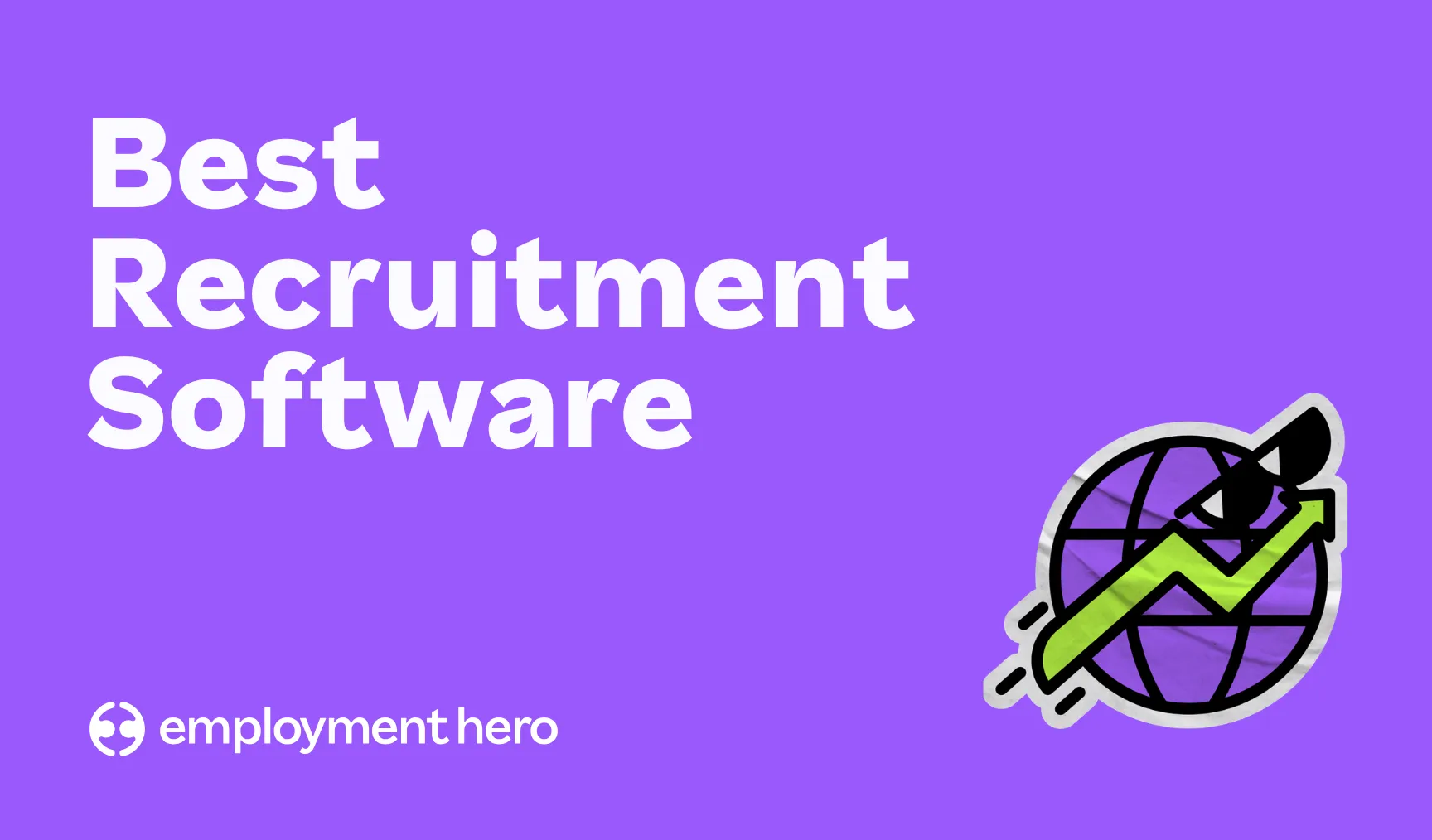 Read more: Best Recruitment Software in New Zealand (2026)
Read more: Best Recruitment Software in New Zealand (2026)Best Recruitment Software in New Zealand (2026)
Find the top six recruiting software in NZ for 2026. Enhance your hiring process with these powerful recruitment tools.





















